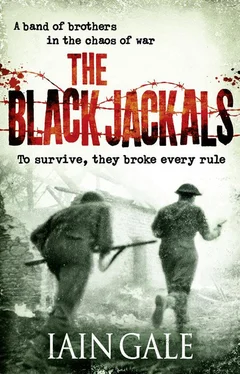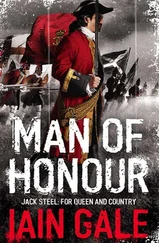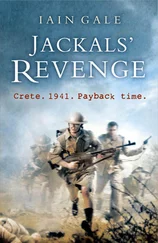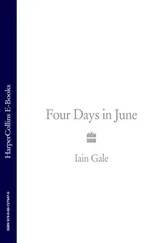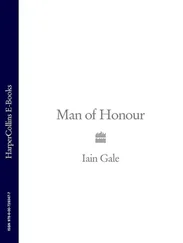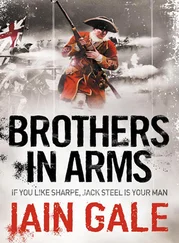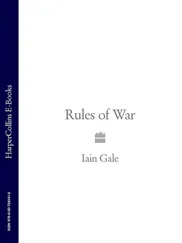‘Nonsense, man. I’m a Brigadier. Better things to do than deliver messages.’
‘But it was given into your hand by the French, sir.’
The officer suddenly grew very serious. ‘Precisely. And now I’m giving it into your hand, Lieutenant. Now you get it to GHQ by whatever means you find necessary. That’s an order.’
‘Sir.’
‘Any more of that claret?’
‘Right away, sir.’
The brigadier smiled at Lamb. ‘Care for a drink?’
‘Don’t think I should, sir. Do you?’
‘Nonsense. Course you should. All officers should drink, what? Should all be able to drink and to get drunk. But not violent. D’you see? That’s for the men. Have a drink, Lamb.’
And so Lamb sat down at the table and had a drink with the brigadier and made small talk. They spoke of home and of cricket and the brigadier talked of hunting in Somerset and racing at Newmarket and of his London club in St James’s which had ruined its windows with ghastly blackout blinds and he told Lamb how hard it was now to get really good Cognac, and at length after his second glass of wine Lamb managed to persuade the brigadier that his presence really was needed with the platoon and after an interminable goodbye left the house and pulled the door closed behind him.
Lamb stood and breathed in deeply. After the fug of the room the night air was cool and sweet and he felt suddenly alive. He began to walk south, back towards the battlefield.
At the crossroads the French lieutenant and his men were chatting and laughing. One of them had cranked up a gramophone and a recent popular song by Jean Sablon cut through the night:
J’attendrai, le jour et la nuit, j’attendrai toujours ton retour.
J’attendrai, car l’oiseau qui s’enfuit vient chercher l’oubli, dans son nid, Le temps passe et court en battant tristement dans mon coeur si lourd
Et pourtant, j’attendrai ton retour.
Walking to a bank of the sunken road, Lamb saw in the moonlight the silhouette of a British tin hat and recognised at once the angular profile beneath it. ‘Evening, Tapley.’
The man who was standing sentry swiftly extinguished his cigarette. ‘And a fine one, sir. Have you seen the stars?’
Lamb looked up. It was cloudless and the stars twinkled in their heaven as they always had. He spotted the Plough and Orion’s Belt and felt comforted – a boy once again by his father’s side, a boy in pyjamas, beneath the night sky in Kent, staring in wonder and pride as his father named the constellations.
‘Yes, I can see them. Not long till you’re relieved, is it? Then I should try and get some sleep, Tapley. We’ve a long march tomorrow, and who knows where the enemy are.’
The man nodded and smiled at him and it occurred to him that part of his role was that of a father, looking after his family of men, adrift in France, looking to him for leadership and inspiration.
They were like Wellington’s men the night before Waterloo, he had decided, retreating up this dirt road. Then on the very next day the great general had turned the tables on his arch enemy with a famous victory. But Lamb suspected that there would be no such chance for his men, or for his army. There would be no second Waterloo. He had been surprised by the attitude of the French officer to the fate of his country and wondered whether it was widespread. How, he wondered, could a nation that had fought with such bravery in the Great War now just give in against the old foe? And this time, Lamb knew, their enemy was not just the old foe, but a new and ghastly one that had risen from the ashes of a country ground down by reparations imposed by the French. Hitler had taken the bones of a broken Germany and fashioned them into a new creature – a nameless horror that must be stopped, whatever it took to do so.
He reached the crossroads and stopped, then turned to look into the starry night down the road along which they had come, back towards the east, and wondered how long it would take the Germans who lay that way to reach the spot on which he now stood. Soon some German officer would be here, gloating over the fact that they had taken the site of Wellington’s victory. He lit a cigarette and took a long drag. Then he heard the village clock across the valley strike eight, and after a few last puffs, he threw it down and ground out the light before heading back towards his men, filled with thoughts of home.
Chapter 5
Lamb and his men arrived on the outskirts of Tournai just as the church clocks were striking the hour and joined a column of British infantry making its slow progress along the cobbled street. Three o’clock, thought Lamb. Good, that would give the men good time to rest before the next day’s march. He wondered where their battalion was now – presumably regrouping with the brigade. Two days was a long time to be adrift from your unit. Obviously the first priority was to deliver the brigadier’s message. That done, they would set off in earnest in search of the battalion. He decided that he would take the note from the brigadier to the highest-ranking officer in the town and take his cue from him. His own instinct was to go north.
Smart turned to him. ‘Blimey, sir. It’s like Piccadilly Circus here.’
It looked to Lamb as if every regiment in the British army must be converging on the town, and by every means available. There were Matilda tanks, staff cars, Bedford trucks, Bren carriers and civilian cars and lorries containing troops. Some were even travelling in open hay wagons drawn by horses. Most of the infantry, though, were on foot. As they advanced further into the town it became clear that the German bombers had paid more than a passing a visit here, very recently. Smoking ruins stood on every street. In some cases entire terraces had been reduced to rubble.
Bennett whistled. ‘Blimey, sir. This place ain’t half taken a pounding. Poor sods. I hope they got out before it happened.’
They passed firemen and civilians working together still trying to extinguish the flames, which continued to burn, mostly from open gas mains. Everywhere there was evidence of the human loss. Clothes and possessions littered the rubble. Lamb saw a woman to his left, half naked, sitting on a pile of bricks. She was sobbing uncontrollably and Lamb wondered what nameless horror had fuelled her grief. As he looked a huge explosion split the air. The men turned to look and to their left saw the façade of several shops tumble to the street. A controlled blast, by the look of it, he thought, trying to stem the fires, and then, sure enough, he saw British engineers laying charges.
They rounded a bend in the street and entered the city centre, or what was left of it. The bombers had known their target, Lamb presumed. This had not been a specific military raid or an attack on factories but simply an attempt to destroy the ancient city and terrorise its population into subjugation. And from what he could see it had almost succeeded. The scene was of utter desolation. Buildings that he presumed had been until hours ago major historic landmarks were now no more than smoking shells. Yet still above them all stood the cathedral with its distinctive towers. And through it all, across roads still being cleared of debris, thousands of British soldiers were making their way.
Bennett spoke. ‘Crikey, Mister Lamb, the whole blinkin’ army’s ’ere. Reckon we might even find our mob in this lot.’
‘I doubt it, Sarnt. They’ve probably headed further north. That would be logical.’
That at least would be what his major, the affable Denis Cooke, would have done. The logical thing. But was there any logic in this war? Any war? Particularly in the sort of war with which he now found himself confronted.
They crossed the river by the main bridge, which, incredibly, was still standing. At a crossroads, standing on an artfully arranged pile of rubble, he found a red-capped British military policeman attempting to direct the traffic and not having much success.
Читать дальше
